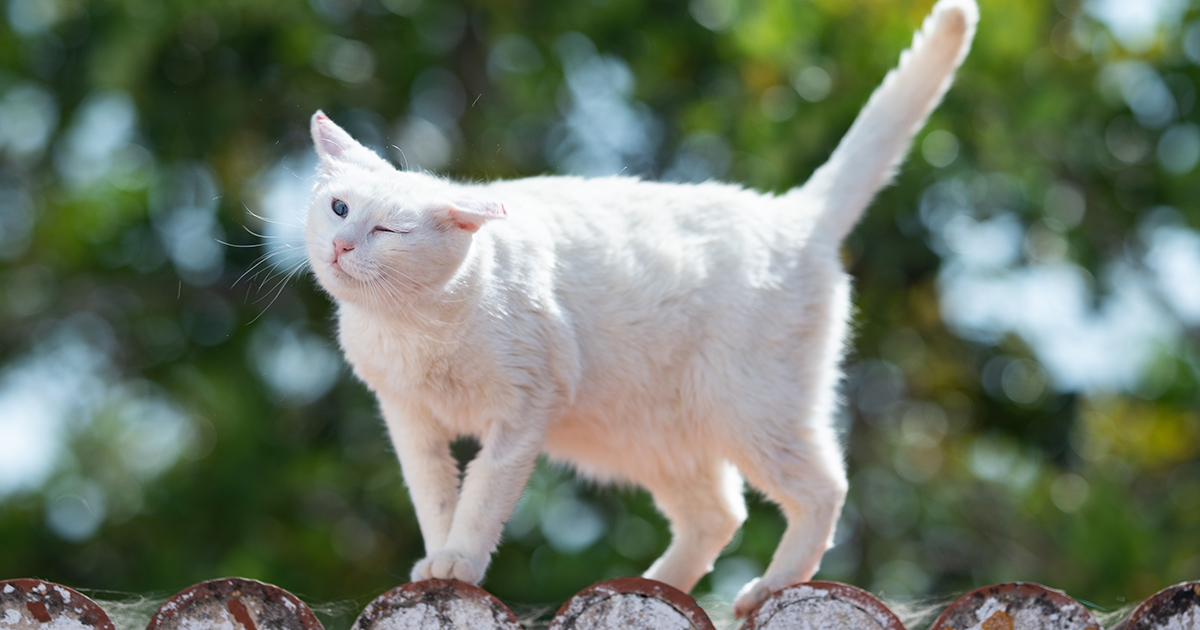Cats Scratching Ears and Shaking Head – Causes and Remedies
Introduction
As a cat owner, you may have noticed your feline friend scratching their ears and shaking their head more frequently than usual. While occasional ear scratching is normal for cats, persistent and excessive scratching, along with head shaking, could indicate an underlying issue that requires attention. In this article, we will explore the common causes of cats scratching their ears and shaking their heads, as well as provide effective remedies to help your furry companion find relief.
Understanding Ear Scratching and Head Shaking Behavior
Why Do Cats Scratch Their Ears?
Cats may scratch their ears for various reasons, and it’s essential to understand the potential causes:
- Ear Mites: Ear mites are tiny parasites that infest the ear canal, leading to intense itching and discomfort for the cat.
- Ear Infections: Bacterial or yeast infections in the ears can cause irritation and prompt the cat to scratch.
- Allergies: Cats can develop allergies to certain foods, environmental factors, or even grooming products, leading to ear itching.
- Foreign Objects: Occasionally, foreign objects like grass seeds or debris can find their way into a cat’s ear, triggering scratching.
Why Do Cats Shake Their Heads?
Head shaking is often linked to ear issues and can be a cat’s attempt to alleviate discomfort. Some common reasons include:
- Ear Pain: Ear infections or inflammation can cause pain, leading the cat to shake their head.
- Imbalance: Inner ear problems may affect a cat’s balance, prompting head shaking.
- Dislodging Debris: Cats might shake their heads to try and remove foreign objects stuck in their ears.
Identifying the Causes
How to Tell If Your Cat Has Ear Issues?
To identify the causes behind your cat’s ear scratching and head shaking, look for the following signs:
- Frequent Scratching: If your cat is constantly scratching their ears, it may be due to mites, infections, or allergies.
- Head Tilt: A persistent head tilt may indicate inner ear problems.
- Ear Discharge: The presence of unusual discharge, wax, or blood in the ears can be a sign of infection.
- Foul Odor: A foul smell from the ears could indicate an infection.
Remedies and Care
Providing Relief to Your Cat
Once you’ve identified the cause of your cat’s discomfort, you can take appropriate measures to provide relief:
- Consult a Veterinarian: If your cat displays persistent symptoms, it’s crucial to seek professional advice from a veterinarian for accurate diagnosis and treatment.
- Cleaning the Ears: Regularly clean your cat’s ears with a veterinarian-approved ear cleaner to remove wax and debris.
- Mite Treatment: If ear mites are the cause, your veterinarian will prescribe suitable medication to eliminate the infestation.
- Medication for Infections: If an infection is present, your vet may prescribe antibiotics or antifungal medication.
- Allergen Management: If allergies are the culprit, work with your vet to identify and manage allergens in your cat’s environment.
Conclusion
Cats scratching their ears and shaking their heads can be concerning, but understanding the underlying causes can lead to effective remedies and relief for your feline companion. Regular ear cleaning and prompt veterinary attention are essential in maintaining your cat’s ear health and overall well-being.
FAQs
- Can I use cotton swabs to clean my cat’s ears? No, it’s not recommended to use cotton swabs, as they can push debris deeper into the ear canal and cause harm. Use a veterinarian-approved ear cleaner and cotton balls for gentle cleaning.
- Are ear infections contagious between cats? Ear infections are not contagious between cats. However, the underlying cause, such as ear mites or allergies, may spread if there are multiple pets in the household.
- Can I use home remedies to treat my cat’s ear issues? It’s best to avoid using home remedies without consulting a veterinarian. Some home treatments may worsen the condition or cause additional complications.
- Should I avoid touching my cat’s ears if they are scratching them? If your cat is in discomfort and displaying signs of pain, it’s advisable to avoid touching their ears until you consult with a veterinarian.
- Is it necessary to visit a vet if my cat stops scratching their ears? Yes, a sudden cessation of ear scratching may indicate a loss of sensation or worsening of the condition. It’s important to have your cat examined by a veterinarian to ensure their well-being.
Read More:Cat Scratching Ears No Mites – Helpful Tips




















